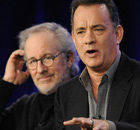Global General
Congo solar eclipse viewers urged to wear certified glasses
(Xinhua)
Updated: 2010-01-15 16:24
 |
Large Medium Small |
KINSHASA: The inhabitants of the Democratic Republic of Congo (DR Congo) have been asked to use certified eye glasses in conformity with the international standards when they gaze at the annular solar eclipse on Friday.
In a message to the nation on Thursday evening, Congolese Minister of Public Health Mwami Mopipi Mukulumanya expressed fears that there may be more after-effects of the solar eclipse such as poor eye sight and a vision modification for certain colors, as well as visual deformations.
| ||||
According to Mopipi, this eclipse will last for much longer time than usual and it will be visible in many DR Congo regions, especially in Kinshasa, Goma, North Kivu, Gbado Lite, Equateur, Kikwit and Bandundu.
The minister said the northeastern region of Isiro Central will be the center where there will be 82.8 percent of obscurity expected to last for 2 hours and 30 minutes.
"The time for the exposure will therefore be very long and this increases the risk of the deadly consequences which are in most cases irreversible," the minister pointed out.
He warned that this could cause palpebral injuries and corneal conjuctivity due to the effects of infrared and ultraviolet radiance.
The corneal injuries may cause pain, but they are reversible after a few days. Crystalline lens injuries could drag on for a longer time. Equally, there may be retinal injuries of the type of retinal burns due to the solar radiance thermal effect on the retinal cells which are particularly very fragile.
He reiterated that the risk will be high in the zones where the eclipse will be partial because the sun will be partly hidden. At no time should the sun be observed with optic instruments (binoculars) like photographic apparatus, he said, advising it should be done within limited time.










